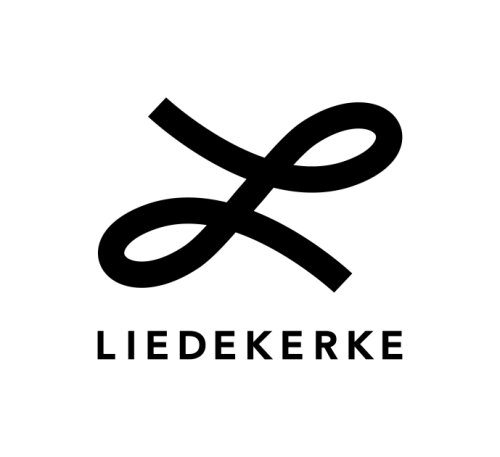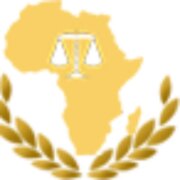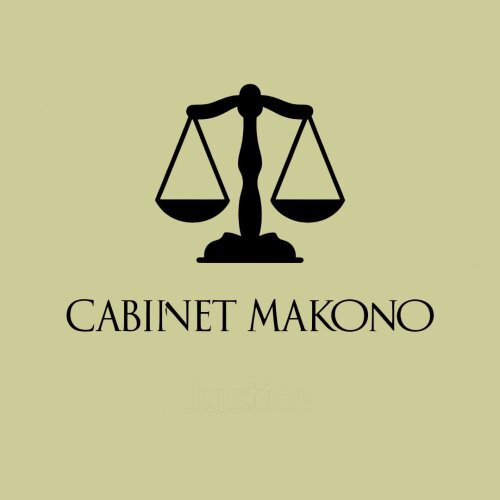Best Renewable & Alternative Energy Lawyers in Kinshasa
Share your needs with us, get contacted by law firms.
Free. Takes 2 min.
List of the best lawyers in Kinshasa, DR Congo
About Renewable & Alternative Energy Law in Kinshasa, DR Congo
Renewable and alternative energy law in Kinshasa, DR Congo, addresses the legal frameworks that govern the production, distribution, and use of energy sources such as solar, hydroelectric, wind, biomass, and geothermal. As the country faces challenges with energy infrastructure and increasing demand for reliable electricity, there is a growing interest in sustainable and alternative energy projects. The government and various stakeholders are working towards expanding access to affordable, clean power, often requiring a clear understanding of environmental regulations, project licensing, land use, and partnership agreements.
The legal landscape surrounding renewable energy in Kinshasa is influenced by national policies, regional objectives for electrification, and international commitments to reduce carbon emissions. As a result, individuals and businesses entering this field must navigate a complex environment involving energy policy, investment regulations, and compliance with emerging standards for sustainable development.
Why You May Need a Lawyer
Seeking legal guidance in the field of renewable and alternative energy in Kinshasa can be crucial in several situations:
- Starting or investing in a renewable energy project such as a solar farm or mini-hydropower plant
- Negotiating contracts or joint venture agreements with local authorities, utility companies, or international partners
- Ensuring compliance with evolving national and regional energy policies
- Securing licenses, permits, and approvals for renewable projects
- Dealing with land acquisition, leasing, or community engagement related to energy installations
- Understanding and navigating tax incentives or government subsidies for green projects
- Resolving disputes related to energy contracts, land rights, or regulatory compliance
- Protecting intellectual property, such as new technologies or innovations in energy
- Managing environmental impact assessments and community consultations
- Preparing for or responding to cross-border energy trading issues or foreign investment regulations
An attorney with expertise in renewable energy law can help you anticipate potential challenges, ensure your project aligns with current regulations, and provide strategic advice throughout the process.
Local Laws Overview
Renewable and alternative energy activities in Kinshasa are primarily governed by national legislation, including the Electricity Code, environmental laws, and policies specific to investment and public-private partnerships. Key aspects include:
- Licensing and Permits: All energy projects, especially those involving public distribution or grid connection, require proper licensing and authorization.
- Investment Codes: The Investment Code offers incentives for investors in renewable energy, such as customs exemptions and tax benefits, especially for projects that promote rural electrification or local job creation.
- Land Rights: Legal provisions affect how land can be acquired or leased for energy projects, including procedures for compensating affected communities.
- Environmental Compliance: Renewable energy projects must comply with environmental regulations, requiring impact assessments and mitigation plans to minimize negative effects on local ecosystems.
- Utility Access: Connections to the national grid and interactions with the main utility provider, Société Nationale d’Electricité (SNEL), are regulated and often require negotiation and compliance with technical standards.
- Local Content and Community Benefits: Laws and regulations increasingly require projects to deliver social and economic benefits to local communities, including job creation and infrastructure improvements.
Because regulations are subject to change and interpretation, it is essential to consult a knowledgeable legal advisor when planning or operating renewable and alternative energy initiatives in Kinshasa.
Frequently Asked Questions
What types of renewable energy sources are most commonly used in Kinshasa?
Solar and hydroelectric are the most prominent renewable energy sources in Kinshasa, but biomass and, to a lesser extent, wind energy are also being explored.
Do I need a government license to start a renewable energy project?
Yes, most projects, especially those connected to the national grid or serving the public, require government-issued licenses and permits.
Are there any financial incentives for investing in renewable energy in DR Congo?
There are tax benefits, customs exemptions, and other incentives available for approved renewable energy projects under the Investment Code and specific energy sector policies.
How are environmental impact assessments handled for renewable energy projects?
Before any large-scale project begins, an environmental impact assessment is mandatory. The assessment evaluates the potential environmental effects and outlines mitigation strategies.
What happens if my project affects local communities?
There are legal procedures for consulting with and compensating communities that may be impacted by energy projects, including requirements for fair compensation and benefit-sharing.
Can foreign investors participate in renewable energy projects?
Yes, foreign investors are welcomed, subject to compliance with investment regulations and, in some cases, joint ventures with local companies are encouraged or required.
What legal issues might arise in acquiring land for a renewable energy project?
Land acquisition can involve multiple stakeholders. It is necessary to secure the correct land rights, obtain government approval, and resolve any disputes with local users or communities.
How can I connect a private energy installation to the national grid?
You must negotiate a connection agreement with the national utility (SNEL) and comply with technical and regulatory requirements for grid access.
Is electricity produced from renewable sources regulated differently than from conventional sources?
While many regulations are shared, renewable energy projects often benefit from specific incentives and may be subject to additional environmental and community-related requirements.
Where can I find legal help or advice about renewable energy in Kinshasa?
Legal assistance can be found through specialized law firms, governmental agencies, and organizations focusing on energy and environmental law.
Additional Resources
Here are some valuable resources for those seeking information or assistance related to renewable and alternative energy in Kinshasa:
- Ministère des Ressources Hydrauliques et Électricité: Oversees energy policy and project approvals at the national level.
- Société Nationale d’Électricité (SNEL): The national electricity utility responsible for grid operations and partnerships.
- Agence Congolaise pour les Énergies Renouvelables: Promotes renewable energy development and may offer guidance to investors.
- Cellule d’Exécution des Projets du Secteur de l’Electricité (CEP-O): Supports project development and investment in the energy sector.
- Investment Promotion Agency (ANAPI): Provides information on investment incentives and regulatory requirements.
- Local and international non-governmental organizations: Several NGOs offer resources, training, and technical support for renewable energy projects.
Next Steps
If you are considering starting, investing in, or expanding a renewable or alternative energy project in Kinshasa, it is crucial to:
- Clarify your project objectives, financing needs, and anticipated location.
- Research applicable laws, regulations, and relevant authorities.
- Engage with a legal professional specializing in energy law to review your plans, identify potential challenges, and assist with documentation and regulatory compliance.
- Initiate early communication with governmental agencies such as the Ministry of Hydraulic Resources and Electricity, SNEL, and other relevant bodies.
- Prepare for community engagement, environmental assessments, and, if applicable, negotiations with potential partners or investors.
- Monitor for regulatory updates, especially as the legal landscape for renewable energy continues to evolve.
Taking these steps will help ensure your project is compliant, sustainable, and positioned for successful development in the dynamic energy sector of Kinshasa, DR Congo.
Lawzana helps you find the best lawyers and law firms in Kinshasa through a curated and pre-screened list of qualified legal professionals. Our platform offers rankings and detailed profiles of attorneys and law firms, allowing you to compare based on practice areas, including Renewable & Alternative Energy, experience, and client feedback.
Each profile includes a description of the firm's areas of practice, client reviews, team members and partners, year of establishment, spoken languages, office locations, contact information, social media presence, and any published articles or resources. Most firms on our platform speak English and are experienced in both local and international legal matters.
Get a quote from top-rated law firms in Kinshasa, DR Congo — quickly, securely, and without unnecessary hassle.
Disclaimer:
The information provided on this page is for general informational purposes only and does not constitute legal advice. While we strive to ensure the accuracy and relevance of the content, legal information may change over time, and interpretations of the law can vary. You should always consult with a qualified legal professional for advice specific to your situation.
We disclaim all liability for actions taken or not taken based on the content of this page. If you believe any information is incorrect or outdated, please contact us, and we will review and update it where appropriate.














